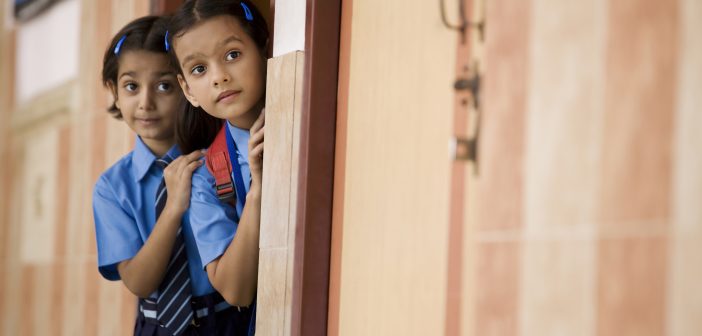Schools are designed for extroverts. Well, society is designed for extroverts, but let’s focus on school for now.
Schools are loud and busy, with bustling populations moving en masse when bells go off. Lunchtimes are raucous events with kids running around, shouting to each other. There are group assessments, friendship groups, and class discussions.
For introverted kids, schools can be, at best, exhausting – and, at worst, an almost impossible landscape to navigate.
How do you know if your child is an introvert? Introverts get their energy from being alone, whereas extroverts get theirs from being around other people. Of course, there’s a spectrum at play there, and all of us fall somewhere along it.
If your child needs time to themselves when they get home from school, if they prefer individual activities rather than team sports, or if they struggle with some of the more social aspects of school, they could be an introvert.
With around 70 per cent of the world’s population being extroverted, and schools having to deliver an education to large groups of children, the education system is largely set up to accommodate extroverts.
The danger for children in this situation is that they may thing there is something wrong with them, because they don’t fit into the status quo at school. That’s not the case – they just need to take a different approach.
Schools have been moving towards more collaborative learning, brainstorming and group work in recent years, which can be challenging for the young introvert. Introverted students might take longer to process ideas and get them straight in their mind, and won’t want to discuss them straight away. They need a quiet environment, and will find it challenging working with people they don’t know well.

Introverts will often get the feedback from teachers that they are attentive in class, but need to participate in class discussions more. But this is measuring introverted students against an extroverted marker of success. A student can work hard and fully grasp the subject matter without feeling the need to engage in group discussions. Students forced to do so will often shut down and do worse in their assessments.
For schools to nurture the 30 or so per cent of their student population that are introverts, they might like to offer:
- quiet and individual activities in class
- quiet spaces within the school grounds, such as garden benches and indoor nooks
- an understanding that loud doesn’t equal better
- more one-on-one time between teachers and students.
Your introverted student might often exclude themselves at home, preferring to hang out in their room or play with the dog rather than engage in family activities. Extroverted parents can worry there is something wrong with their child, or show concern about a lack of friends, when really, it’s just a different way of experiencing the world.
The best thing a parent can do for an introverted child is to accept them for who they are and stop expecting them to be more social. It’s important to understand there is nothing wrong with an introverted child, and they don’t need to be fixed.
Not everyone needs to be a comfortable public speaker and group worker, and introverts bring their own strengths to the table. They include:
- not needing others to recharge their batteries
- being self-reliant
- having strong, meaningful relationships
- communicating effectively rather than making a lot of small talk
- being a good listener
- being sensitive to others’ emotions and experiences.
The main thing to remember is that being an introvert is a wonderful thing, as is being an extrovert, as long as you’re understood and encouraged to do your best in a way that you’re comfortable. As parents, we can help our introverted children by accepting them the way they are, and giving them what they need to succeed as themselves.


1 Comment
Cainllg all cars, calling all cars, we’re ready to make a deal.